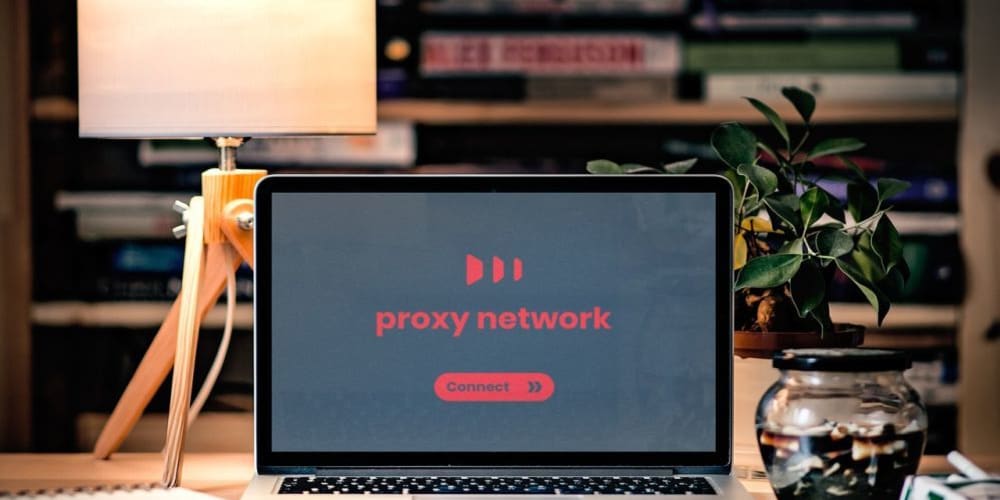Why VPNs are Overrated
Privacy and security have become top concerns for users browsing the internet. With so much data collection at every corner of the web, everyone is interested in solutions that ensure anonymity and safety online.
As per usual, the tools that get good publicity at the right time seem like the best solutions to the problem. Virtual Private Networks (VPN) are well-advertised middlemen servers that send data packets on our behalf. VPNs create a safe and encrypted connection between the user and the server, which makes them the most popular go-to tool for anonymity on the internet.
But despite a bunch of positive feedback, tech-savvy users do a great job and expose weaknesses of VPNs. Not only do they not provide as much protection as everyone thinks, but VPN providers also claim to keep no logs, while the reality is quite different. Disappointed by the service, some individuals choose shared proxies as a much cheaper alternative that suits their needs. Let’s discuss the privacy concerns of VPNs, alarming differences in providers, and other factors that show that VPNs are overrated.
VPNs still keep logs
VPN providers love to emphasize the features that ensure full privacy and anonymity of clients. Promises of no log keeping have so many exceptions that make the statement lose its value. Most popular VPNs promise safety and privacy, but promises made by these providers are blanket terms that have different meanings in various circumstances. It is not really a no-log policy if it keeps your network identity. VPNs log IP accounts and login details of their clients.
It would be impossible to connect clients to their dedicated VPN IPs without logging the necessary information for a connection. Stable addresses come from real internet service providers, which makes them far less likely to be blacklisted. However, to always return to this connection, VPN providers need to keep records – something they promise not to do.
VPN servers have more privacy gaps than users realize. That is why they try to over promise with no-logging policies. To find a VPN with the highest level of anonymity, a client has to compare providers, but there will always be exceptions to most policies.
When finding a truly anonymous VPN is too much of a hassle, users choose cheap proxies as a much simpler alternative. Shared proxy servers offer true privacy that is unachievable with a dedicated VPN IP. By reading up on these services, users can better understand the differences between them, as well as pay more attention to the policies of different companies.
Misconceptions about VPNs
Most clients trust VPNs due to their popularity and promises of encryption. A casual user has to understand the basic functionality of VPNs when they are needed, and possible misconceptions about their use.
VPNs are not as safe as everyone thinks, because only the link between the user’s device and the server is actually protected. Once the data packets leave the VPN server, they can be intercepted by hackers. Their safety focuses on protecting data when accessing the internet via a public network. Of course, it will still hide your IP address, but when it comes to real anonymity, the police will have no problem punishing users for illegal activities.
Depending on your needs, VPNs can be overrated and not worth the price. Cheap proxies from good providers hide our IP address and have the ability to affect separate software and not the whole system. VPNs are a much better alternative when used in public networks, but they will not make you untouchable.
When should you use a proxy server instead of a VPN?
Good advertisement of successful VPN providers made the service popular among even casual internet users. Thanks to encryption, it offers respectable protection, but its flaws lie in poor applicability. Companies that need anonymity for sensitive internet tasks prefer using proxies over VPNs. The beauty of proxy servers lies in versatility. You can use multiple IPs at the same time for different applications.
Cheap proxies are an essential step for users learning to automate repetitive but necessary tasks, such as web scraping. Data analysis is a necessity in most modern companies, and these skills are crucial for finding business solutions. Starting with cheap proxies helps users build experience for future projects.
The internet is full of companies relying on business-oriented proxy IPs for sensitive operations. To get the most out of the service, we use residential proxies with IPs from internet service providers. By running multiple tasks on different proxies you get much more value, and these shoes are just too big for a VPN to fill.
VPNs truly shine in their primary goal of preventing data theft in public networks, but other than that, it is overrated. For simple private browsing, cheap proxies cost less and offer the same functionality with a lot more possibilities. Find a legitimate proxy provider and the service will not disappoint you.

